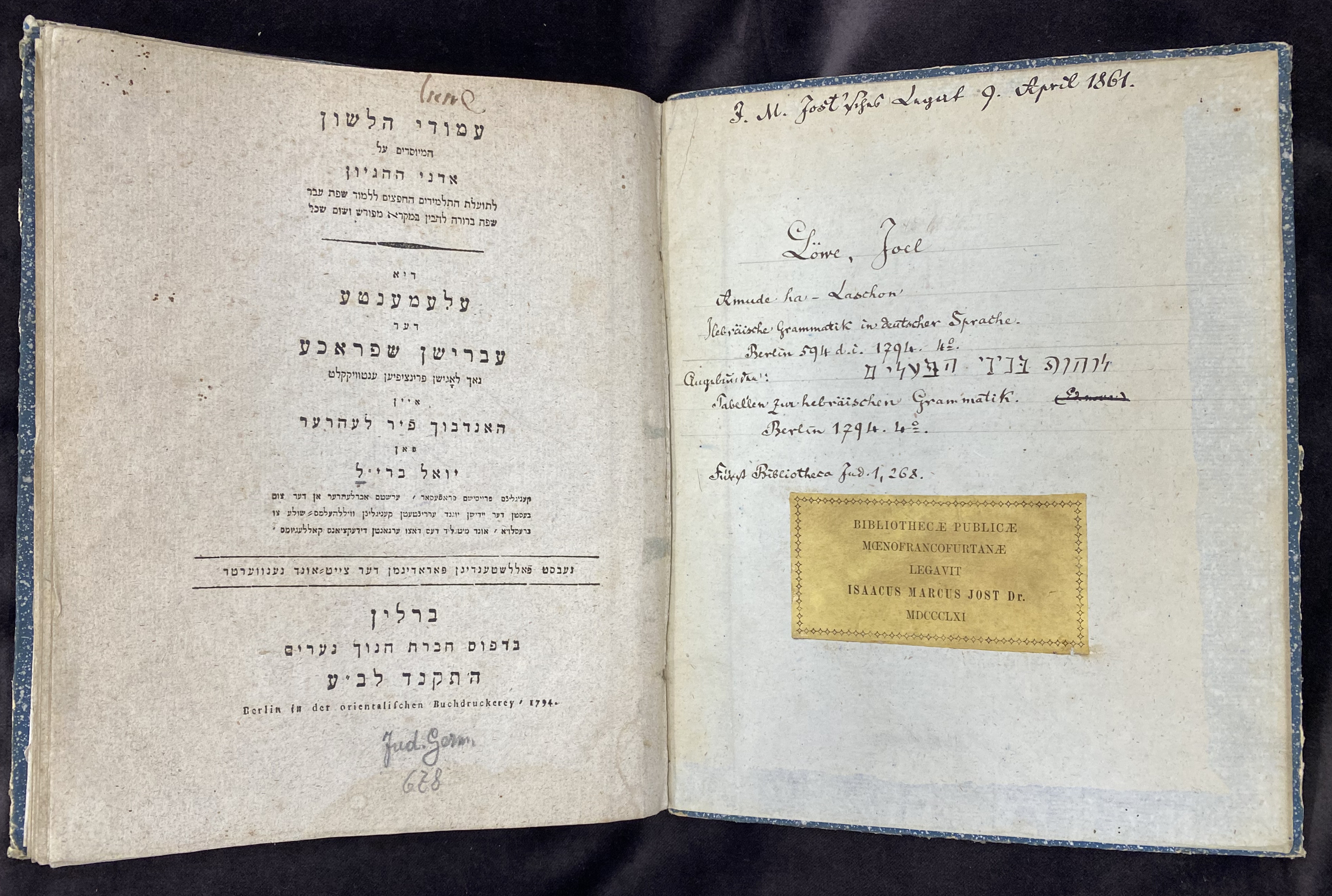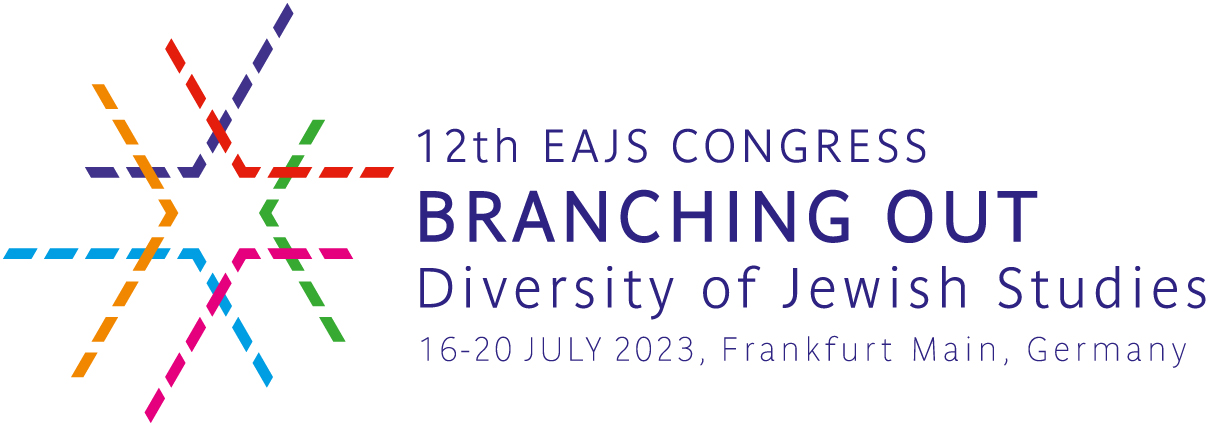- GU Home
- 12th EAJS Congress
- Jewish Books & Jewish collections: Treasures of the University Library Frankfurt
- Haskalah – The Cultural Revolution of the Jewish Enlightenment
- The Elements of the Hebrew Language – ʿAmude ha-lashon – עמודי הלשון
The Elements of the Hebrew Language – ʿAmude ha-lashon – עמודי הלשון

Joel Loewe, עמודי הלשון : המיוסדים על אדני ההגיון לתועלת התלמידים החפצים ללמוד שפת עבר — דיא עלעמענטע דער עברישן שפראכע נאך לאגישן פרינציפיען ענטוויקקלט : איין האנדבוך פיר לעהרער, Berlin 1794. Hebrew, German | Call Number: Jud. Germ. 678 | Digital copy via Frankfurt's Digital Judaica Collections.
Joel Loewe (1762–1802) was one of the most active members of the Berlin Haskalah and involved in many of its publications. At the age of twenty, he went to Berlin, where he met Isaac Satanow, Moses Mendelssohn, Issac Euchel, and others. Conjointly with Aaron Wolfsohn, he edited Ha-Me'assef, and periodically published numerous poems and essays. Towards the end of his life, Loewe was the headmaster of the Wilhelms-Schule in Breslau, a Jewish Free School shaped by maskilic educational ideas. For the development of the literary republic of the Haskalah in the 18th century, the printing press played a key role. It was a focus for diverse economic, social, and intellectual activities, and central to the dissemination of the enlightenment. The Freischule Press, established in 1784, was the first printing house in Jewish history designed to serve modern transformational purposes. One of the great maskilim enterprises was the renewal of the use of Hebrew as a literary language for secular needs, which fostered the interest in grammar and facilitated the production of literature, journalism, poetry, and plays. In the last decade of the 18th century, tens of titles were printed in the Freishule Press in Berlin, which enriched the shelves of the Haskalah library. Hebrew grammar books contributed to expanding knowledge of the Hebrew language. Loewe himself authored several books on the Hebrew languages, such as his 'Amude ha-Lashon.
- Aktuelles und Presse
- Pressemitteilungen
- Öffentliche Veranstaltungen
- Uni-Publikationen
- Aktuelles Jahrbuch
- UniReport
- Forschung Frankfurt
- Aktuelle Stellenangebote
- Frankfurter Kinder-Uni
- Internationales
- Outgoings
- Erasmus / LLP
- Goethe Welcome Centre (GWC)
- Refugees / Geflüchtete
- Erasmus +
- Sprachenzentrum oder Fremdsprachen
- Goethe Research Academy for Early Career Researchers
- Forschung
- Research Support
- Forschungsprojekte, Kooperationen, Infrastruktur
- Profilbereich Molecular & Translational Medicine
- Profilbereich Structure & Dynamics of Life
- Profilbereich Space, Time & Matter
- Profilbereich Sustainability & Biodiversity
- Profilbereich Orders & Transformations
- Profilbereich Universality & Diversity






